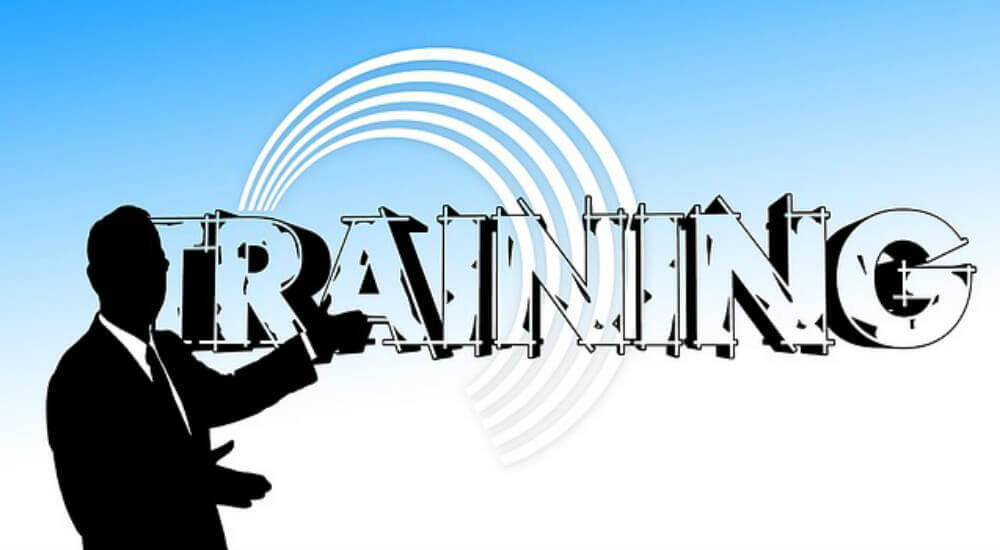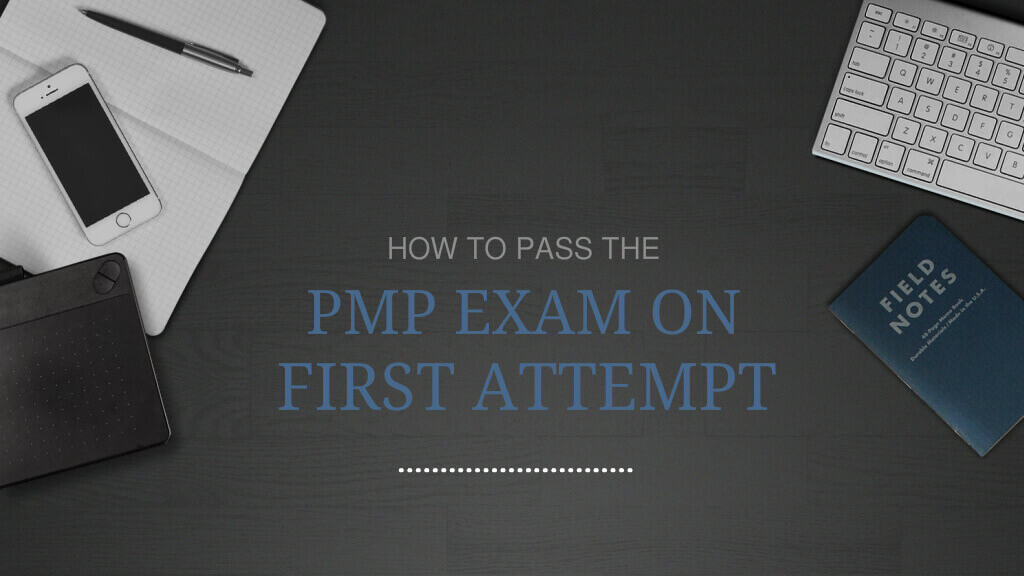If you are into project management and interested in knowing how to get the PMP certification, this blog post is for you.
The PMP certification is not as difficult as many people think. If you plan correctly and have the right resources, passing the PMP exam on your first try will be easy.
Before we dive into the details of PMP exam preparation, let us know the PMP certification.
What is the PMP Certification?
The Project Management Professional (PMP) certification is a globally recognized credential for project professionals. The certification is offered by the Project Management Institute (PMI), USA, a non-profit organization dedicated to advancing project management.
PMI was founded in 1969 to advance the field of project management and is located in the USA.
The PMP certification is highly respected in the project management industry and is preferred by employers for project management roles. It can help individuals show their knowledge and expertise in project management, enhance their career opportunities, and increase their earning potential.
As of today, 1.2 million project professionals hold this credential.
PMP Certification Eligibility
You must fulfill three eligibility requirements set by the PMI:
- The first requirement is education. You should be a degree or a diploma holder.
- The second requirement is experience. If you are a degree holder, you should have at least three years of experience in leading and directing projects; if you are a diploma holder, you should have five years.
- The third requirement is training. You must have 35 contact hours of formal education in project management.
You can start your PMP exam preparation if you satisfy the first two conditions. You can earn 35 contact hours during the preparation, as I will explain later in this blog post.
Remember that once you start your application, you have 90 days to complete and submit it. After your application is approved, you have one year to pass the exam. You will be given three attempts in one year. If you cannot pass the exam in one year, you cannot apply for the PMP exam for a full year.
How to Get the PMP Certification
The process to earn the PMP credential is as follows:
#1. Collect Information
First, collect all information regarding the PMP exam.
Meet with professionals who have passed the exam, visit PMI.org, read lessons learned from successful exam takers, search the topics, etc. Find the useful resources successful exam takers use during their PMP exam preparation.
Collect all the PMP exam process information, resources, PMP exam format, etc.
Sign up for a PMI membership. A PMI membership offers you many benefits. Among those benefits, two benefits are the most important for PMP exam preparation.
The first benefit is a reduction in exam fees. The PMP exam fee for PMI members is lower than for non-members. The difference between the two is more than the fee you will pay to become a PMI member.
The second benefit is a free digital copy of the PMBOK Guide. The Kindle version of the PMBOK Guide costs around 51.73 USD on amazon.com. However, you can download it for free from the PMI website if you are a PMI member.
Besides the PMBOK Guide, I recommend buying two other good PMP exam reference books: Head First PMP and Rita Mulcahy.
Download the latest version of the PMP Exam Content Outline, as the PMP exam is based on it.
#2. Start the PMP Exam Preparation
Once you have collected all the information and study material, start preparing.

Start with Head First PMP. Read this book from cover to cover. Reread it if needed.
Don’t begin with reading the PMBOK Guide. The PMBOK Guide is written in formal language, and you will feel bored. It is a little complex and tough, and you may lose interest while reading.
Therefore, start your preparation with a PMP exam reference book.
Head First PMP is a good and easy book that will equip you with all project management knowledge.
Once you are done with the first book, you can start Rita. Rita is a little tough and will elevate your understanding of the subject.
After finishing two other books, it is time to read the PMBOK Guide at least three times. Try to understand the concepts given in this guide.
#3. Attend the PMP Training
Now you are ready for the PMP training. Although you can get this training through various methods and different training providers, I recommend you join a PMI approved Authorized Training Provider (ATP).

There are many benefits of getting training through a PMI approved ATP. Their content is reviewed and approved by the PMI and aligned with the latest version of the PMBOK Guide. Their approval is itself a guarantee of the quality of the content.
If you are selected for an audit during your application process, you won’t have to show your training contents to the PMI and prove that it fulfills the requirements because they have already reviewed and approved them.
If you get your training from another resource, you will have to prove that the course content was aligned with PMI guidelines, and failing to do so can cause you to fail your audit.
It is in your best interest to join a PMI-approved ATP to get your 35 contact hours of training.
These days, three types of training programs are the most popular:
- Classroom training programs
- Virtual training programs
- Online training programs
Classroom Training Program
This is the traditional method of teaching. Here you go to class, a trainer teaches you the concepts for three or four days, and at the end of the program, you get your 35 contact hours training certificate.
Although this is a better way of teaching, the cost of this type of training is exorbitantly high. It starts from 1,000 USD and goes up.
These training programs are held in big cities on a fixed schedule. So, unless you live there and have a free schedule, it will be difficult for you to join one.
Virtual Training Program
In this training program, a trainer teaches concepts via a PC with the help of the Internet.
All attendees have to attend the sessions from different locations through video conferencing at the same time.
Although virtual training programs offer flexibility to join them from your home, they are costly, and the schedule is fixed.
Online Training Program
In this training program, you have to study on your own. The training material is available online; you can access it anytime, anywhere.
This is the most flexible training program, costing around 150 USD and more.
I recommend you join an online training program to attain the 35 contact hours certificate.
I have seen many aspirants attend the training without preparation and then prepare for the exam. This is incorrect. If you do so, you will face difficulties understanding many concepts. Preparing in advance will help you get the most out of your training.
If you haven’t attended a training program yet, I recommend you join my online 35-contact hours training program.
This program is PMI approved and offers you many benefits over other online training programs.
This program is a complete PMP exam system loaded with many tools.
After you complete the training, it’s time to practice questions. This is an important part of your PMP exam preparation.
In the PMP exam, you will get 180 questions and have to solve them in three and a half hours in a controlled environment.
To solve 180 questions in four hours, you need to practice. You should practice around 1,000 to 1,500 questions.
You should subscribe to a good-quality PM exam simulator that can provide you with enough good-quality questions to practice.
After you practice enough questions, try taking mock tests. Mock tests provide you with an opportunity to test your readiness. Sitting for three and a half hours is hard, and mock tests allow you to experience it. Attempt high-quality mock tests.
If you consistently score above 70%, your preparation is going in the right direction, and you are ready for the exam. If you score less than 70%, find your weak spots and work on improving your performance.
Do not repeat the same test to check your score; it will give you a false result, as you have already tried it and now know which questions you answered wrong on your first attempt.
#4. Important Considerations During the Exam Preparation
During your exam preparation, keep a few things in mind.
Avoid Using Too Many Free Resources
I have many aspirants who are always looking for free resources. They study everything they can find and attempt any questions online for free.
You should avoid this.
Using the resources I recommended in this blog post will be enough for you to prepare and pass the exam on your first attempt.
All online resources are not guaranteed high quality, error-free, and aligned with the current content guidelines.
Most of the time, they are inferior quality, outdated, and contain errors. They don’t offer support, and your questions will go unanswered.
It may corrupt your concepts and demoralize you.
Therefore, stick to a few good-quality resources.
Avoiding Math Based Questions
Many aspirants who do not have a math background avoid math-based questions in the PMP exam. They think they can invest time in other sections and score better there.
This is also an incorrect practice, and you must avoid it.
You must prepare yourself to attempt 100% questions. A single right answer can make you pass; likewise, a single wrong answer can make you fail.
You must practice calculation-based questions.
My 35 contact hours training program includes my PMP Formula Guide, an eBook of about 125 pages explaining all PMP formulas with examples and practice questions.
If you have issues with math-based questions, this eBook will help you.
However, if you attended a training program and are having issues with math-based questions, you can use my PMP Formula Guide.
Study in a Workgroup
Try to find other professionals who are preparing for the PMP exam. Join them and study together at least one day per week. During this group discussion, you can discuss your doubts and explain your understanding of topics someone else has issues with.
It will build your confidence and elevate your understanding of subjects.
Prepare Your Notes
Prepare your quick notes and memory maps.
These quick notes will help you remember concepts when you revise them. Memory maps are a good retention technique for drawing visual maps/branches of ideas to help you remember the knowledge.
Always use your quick notes, as using notes prepared by others will not help you, and they can confuse you.
Think the Way the PMI Thinks
While answering the questions on the exam, you might be tempted to think and remember how you were doing your job in the real world. Don’t do this.
While answering the questions, think like you are living in an ideal world, the project is big, and you have followed the PMI procedures.
#5. Schedule the PMP Exam
As soon as you complete your training, schedule your exam.
This is an important step. You won’t be serious about your studying until you schedule your exam. Once you fix your schedule, your potential will increase, and you will be more motivated toward your studies.
Stick with the schedule and avoid the temptation to change it. I have seen aspirants who changed the schedule a few times and then lost interest.
Three months are enough to prepare for the PMP exam. Your mileage may vary. Fix a date, develop a plan, and complete your preparation accordingly.
#6. Attempt the PMP Exam
Explore the exam center one day before to avoid the stress of searching for the location on exam day. Reach the Pearson VUE Center at least 45 minutes early. They will ask you to fill out forms, and then you will be taken to the examination hall and allowed to attend the exam after a thorough search.

Note: You can also attempt the exam from home if you have a stable net connection and an uninterrupted power supply.
Before the exam starts, you will be walked through an awareness session. This session will explain how to select an answer, mark it for review, use the inbuilt calculator, end the test, etc. The duration of this session is 15 minutes. Once you complete the awareness session, the test will start.
The test comprises 180 questions, which include multiple-choice, multiple responses, matching, hotspot, and limited fill-in-the-blank questions
These question also includes 15 pretest questions. Pretest questions are included to test the validity of future tests. The marks from these questions are not added to your score, but there is no way you can identify these questions. Therefore, be prepared for 180 questions.
PMI has divided exam questions into three domains:
- People – 42%
- Process – 50%
- Business – 8%
In the exam, 50% of questions will be from predictive project management, and the other 50% will be from Agile or hybrid approaches.
The test lasts three and a half hours, and you cannot take a break if you are taking the test at a physical center. For the online version, you can avail yourself of two breaks of 10 minutes each after 60 and 120 questions each.
Note that if you take a break at the test center, the time taken for a break will count toward your exam.
A Pearson VUE staff member will search for you whenever you leave or enter the examination hall.
While attempting the questions, try solving the easier questions first. If you encounter tough questions, mark them for later review. Sometimes a tough question can take considerable time, and you will not realize it. So leave them for a later attempt.
Once you are done, try the tougher questions again.
The PMP exam has no negative marking; therefore, do not leave questions unanswered.
Finally, check all your answers for accuracy. Sometimes you know the correct answers, but you click the wrong option while selecting the answers. Try to find these errors and correct them.
If you still have time, revise the questions again. You may be exhausted and desperate to click the submit button this time, but remember that you will never have this time again. This is the moment you have been preparing for many months. So invest in it wisely and use all available time to revise questions.
Please note that exam questions are different for each examinee. If you receive more hard questions, your passing mark may be low; if you get many easy questions, your passing mark may be high.
Don’t feel stressed during the exam if you get many tough questions.
If you are well prepared, attempting 180 questions should not take 2:30 to 3:0 hours.
Once you complete the revision and are satisfied with your answers, click on submit answers.
The screen will turn white for a few moments, and then you will be shown your result.
I hope you will see a congratulatory message.
The last step is a celebration. Once you pass the exam, celebrate it!
Finally, update your CV and edit your signature to add the PMP credential.
How to Get the PMP Certification: FAQs
Q1: What is PMP certification?
PMP certification stands for Project Management Professional certification. It is a globally recognized certification that validates a person’s experience and skills in project management.
Q2: Who is eligible for PMP certification?
To be eligible for PMP certification, you must have either a secondary degree (high school diploma, associate’s degree, or the global equivalent) with at least five years of project management experience or a four-year degree with at least three years of project management experience. You also need to complete 35 hours of training in project management.
Q3: How do I apply for the PMP exam?
You can apply for the PMP exam online through the Project Management Institute (PMI) website. You must create an account and fill out the application form, including details about your education, project management experience, and PMP training. Afterward, you can make the payment and schedule the exam.
Q4: How much does it cost to take the PMP exam?
The cost of the PMP exam depends on your membership status with PMI. As of 2023, the cost for PMI members is 405 USD, while non-members pay 555 USD
Q5: How long is the PMP exam?
A: The PMP exam is a computer-based test consisting of 180 questions. You have three and a half hours to complete the exam.
Q6: What topics does the PMP exam cover?
The PMP exam covers traditional, agile, and hybrid project management. It also covers professional and social responsibility.
Q7: How long does it take to prepare for the PMP exam?
A: The preparation time for the PMP exam varies depending on your prior experience and project management knowledge. You should allow yourself to study for at least 3-6 months to prepare for the exam.
Q8: How long does it take to receive the PMP certification?
Once you pass the PMP exam, you will receive your certificate within four to eight weeks.
Q9: How long is the PMP certification valid for?
PMP certification is valid for three years. To maintain your certification, you must earn 60 professional development units (PDUs) per three-year cycle and report to PMI.
Summary
The PMP exam is a highly valued certification, and having this certification will increase your career prospects. Getting the PMP certification is easy if you have prepared with the right planning and dedication. Scheduling the exam is the most important step for your PMP exam. Once you schedule the exam, you will be motivated and able to complete the preparation by the due date.
What about your preparation? Are you still planning for it, or have you already scheduled the exam? Please share your experience through the comments section; I’ll gladly discuss it.

Hello sir,
I have been following your blogs for quite sometime now and I find them very easily described and really very helpful.. I need more understanding regarding the 2nd eligibility criteria, I am working with Cognizant Technology Solutions for more then 3 years now, i really can’t say that I am associated with a project, it’s kind of a operations.. I would need your help to understand if I can still take the exam.. if not, what shall I do to be eligible?? You may think this is an irrelevant question as you have already explained, but I need a clarification from you.
Thanks
Hello Anishka,
Since you don’t have project management experience, you can not apply for the PMP exam.
However, you can apply for the CAPM exam. No project management experience is required here.
Remember you could be a “contributer” in a project. You don’t have to be a project manager in your role. Project management is a very wide term. As long as you have been working in project management framework then you should be fine. Also you could have zero experience in initiatIng or planning but most experience in execution and closing. I will suggest get help in filling application from any of your work colleauge who just went through the PMP process, particularly application process.
Hi Fahad,
I have attained 35 hrs contact training of PMBOK 5th Edition. Can I appear in PMP Exam now?
Many thanks
Yes, you can.
Contact hours never expires.
Even if you have attended the contact hour training on pmbok 5 , technically you can appear PMP certification exam based on PMBOK 6th edition.
But pmbok 6 has agile considerations & a few changes around 20-25%. If you are well verse with these then go ahead. Else suggest to attend a training for pmbok6 to get knowledge for the 6th edition changes
Regards,
Tanveer PMP , ACP , CSM , ASM , Prince2 pract, RMP ,
http://globusinternational.org.in/index.php
https://www.linkedin.com/in/tanveer-sayed-pmp-prince2-pract-acp-csm-asm-itil-six-sigma-469a8915/
There are no agile questions in the PMP exam yet.